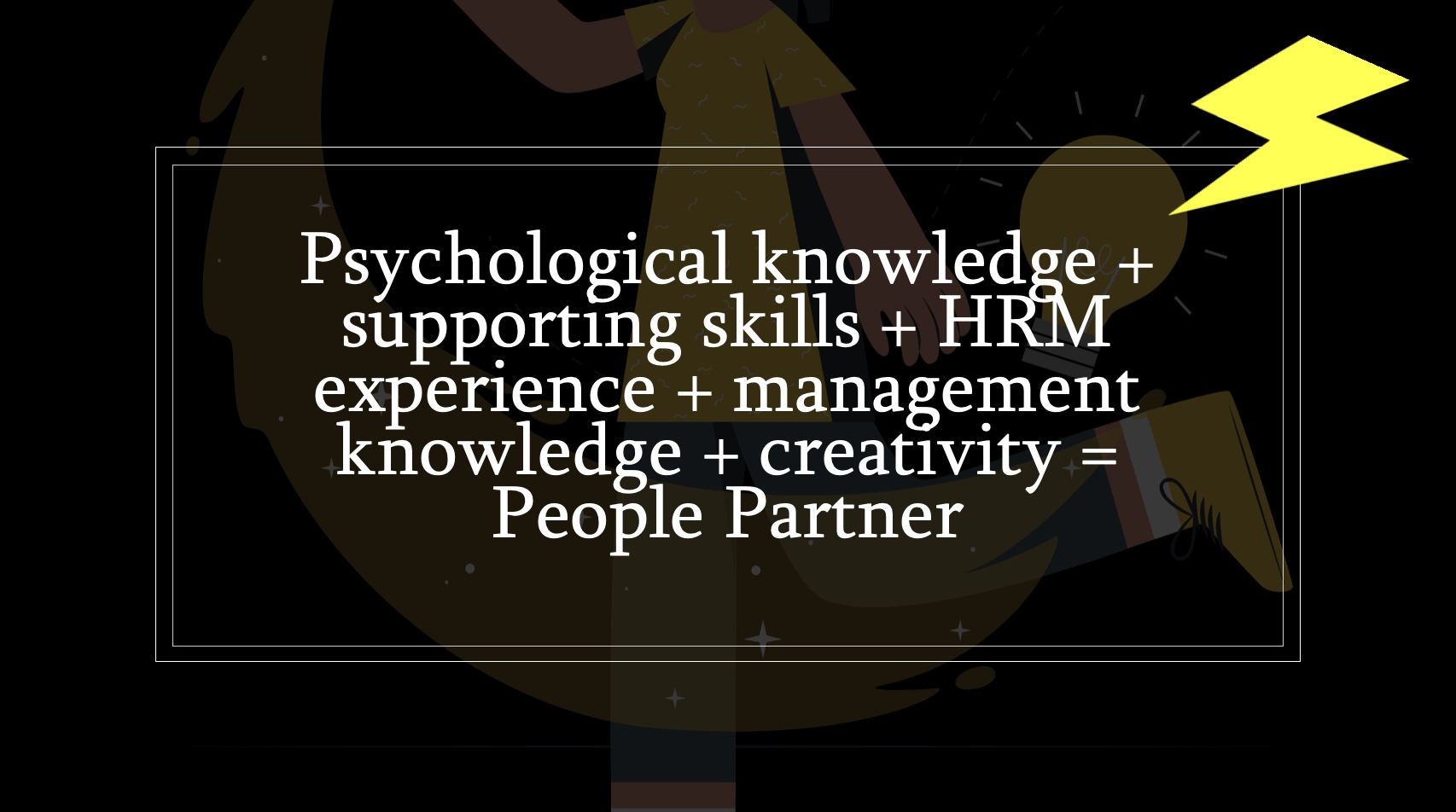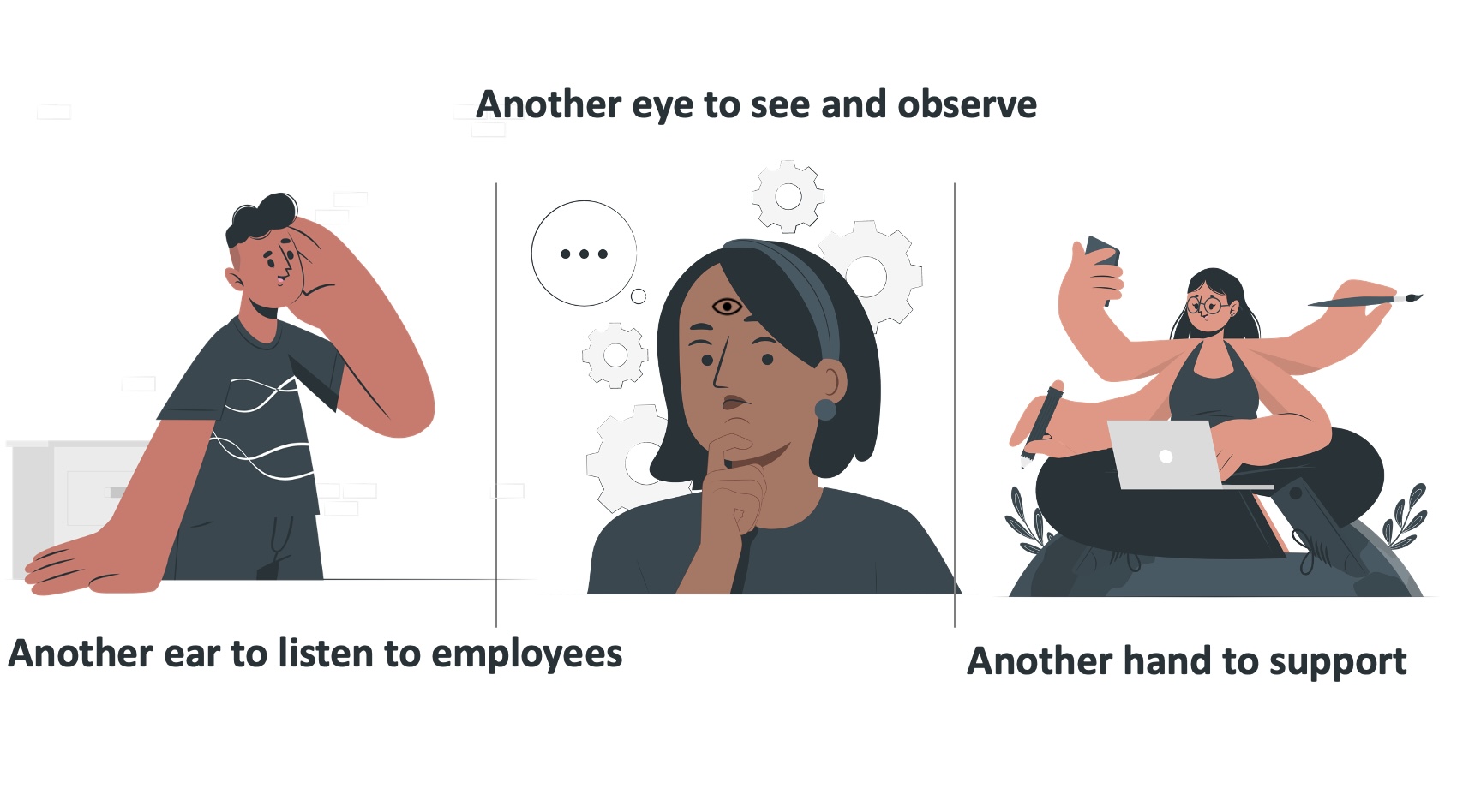
HRM has gone through a whole historical path during its entire existence․ The names of the HRM have been subject to time-varying and have come in various forms․ The competences and roles of the HR specialist, starting from performing personnel functions, have reached strategic partner, business parts and people parts. However, whatever guise this role takes, one thing remains unchanged: we work with people, with human souls and species, with human emotions and feelings. In this article, I address HR from a psychological lens perspective, from the perspective of the need to incorporate psychology.

If we turn to the name of the role of HR professionals, we can see that it has undergone historical changes։ Human resource management, human capital management, people operations․ Those are the names under which that structure came up and stands. But how can one shout out to the whole world that HRM has become human-centered, that human-centered policies and practices are being implemented, if the word human here is not a noun but an adjective? This is one of the mistakes of the whole work, to change the ideology and ignore the most important details․
People and culture has recently become a very popular term․ And finally, we can make an observation that the word “people” appears as a noun․ This somewhat justifies the policies and approaches adopted by this structure․ Now we can talk about human-centered HR. This is a widespread ideology all over the world, many organizations are switching to this concept and implementing a people-centered or people 1st culture.
Reflections on all this and my way led me in the direction that prompted to create my own concept of people 1st․
I recently started working with an IT industry․ And when I wanted to introduce coaching services and psychological support for them (cause after wartime and post-covid period, the need for it was felt), there were many prejudices on his subject. Many thought that IT people are technical people, they don’t like to communicate, and my plan will not succeed․ But being a psychologist and coach, I believed that there are no such limitations, that such opinions are only stereotypes, that every person, regardless of the field, needs such support․ It’s surprising and exciting at the same time that my plan worked and was welcomed․ This experience was a great platform for me to create my own concept of people 1st and breathe new life into HRM by creating the People Partners Institute.
So here are the six main ideologies of being human-centered People Partner.
- The first refers to the strengthening and application of psychological knowledge in the processes of this structure․ It will help a lot in working with people. Psychology is science of the soul. When we know human structure: how they think and how they act, it will be easier for us to cooperate with them. This science enables us to get another ear to listen to employees, another eye to see and observe their behavior, another hand to support them….
- The second is about avoiding stereotypes․ I discovered with my experience that many of the employees have a deep love for psychology & coaching․ My most important advice on this topic is to draw conclusions based on your own experience․

- The next advice is about listening to our employees. But please not with annual surveys or satisfaction surveys, as almost all organizations do these days…those make things more difficult for us. We should listen to them individually, listen to their questions, needs, problems and most importantly, their suggestions. people often know better what they need than we do…
- Who often has contact with the banking system must have heard about the KYC / Know your customer/ sheet. We must have it for our employees as well KYE/ KNOW YOUR EMOLOYEE․ In order to work more effectively, it is necessary to recognize the talents and interests of our employees․ This is a great field for us to ensure employee satisfaction, ensure work-home balance, find talented and bright people and promote the manifestations of talent. People are different – and the approach to them should also be different.
- And my final insight is about acting as a partner to our employees, adopting such a approaches and policies so that employees strive to work and cooperate with us. We have to focus on their hearts and minds. Cause when they fell like humans, their success all returns to our companies.
And finally, I want to share my formula for being a people parter:
Psychological knowledge + supporting skills + HRM experience + management knowledge + creativity = People Partner
Article author: Mariam Khonchanchyan
